Lesbian Dictionary Spanish
How to say lesbian in Spanish
Below are the words of our Spanish Lesbian Dictionary that we will expand in new editions. If you know any more, please, contact us. But first some information about the language and this dictionary.
Spanish or Castilian an Indo-European language spoken in 31 countries, with a total of 528 million speakers, mainly in Spain and Latin America, is the second language in the world after Chinese.
In this lesbian dictionary, you will find terms and expressions of all categories (which you can consult in Lesbian Dictionary) although they emphasize those that have to do with patriarchal masculinization, as well as those created by the lesbian community itself. This variety is due to a large number of speakers, the great geographical extent, as well as the time interval since there are current words and others that date back to the 2nd century BC.
From this lesbian dictionary we would highlight all the words of the group “tortillera” for its possible interrelation, also the expression “Juana Gallo” for the great story behind it, as well as the variations of the word “lesbian” or the curious “play tennis”.
- +
Amaricada
one of the characteristics of Spanish Lesbian Dictionary is the transformation of some insults against gays for use against lesbians, which does not happen on the contrary. The reasons for this may be the greatest invisibility of lesbians in the past and the social status of women. The smaller number of expressions for lesbians is also a consequence of the above, so it is easy to understand that in a new and unknown fact, as sexuality and homosexual behavior of women, used the same words that are used against Gays, changing gender or using exactly the same. The word Amaricada would be an example of this, since it is a variation of the word Marica, which is used against gay or effeminate men. No matter the effeminacy of the original term, just the use against gays.
Related Chonga, Chongo (Argentina), Changa (Panama), Cudanga (Dominican Rep.), Fleta (Chile), Hueca (Guatemala), Maricona (Argentina, Bolivia, Chile, Colombia, Miami, Dominican Rep., Ecuador, El Salvador, Honduras, Mexico, Peru, Puerto Rico, Venezuela), Mofletera (Mexico), Pájara (Dominican Rep.), Pata (Miami, Dominican Rep., Panama, Puerto Rico, Venezuela), Pato (Puerto Rico), Piroba (Colombia), Trola (Argentina).
+Arepera
an expression used in Colombia and elsewhere in Latin America to point to the homosexual woman. Arepas and cachapas are some pancakes made with corn very present in the Colombian and Venezuelan cuisine, so initially, the areperas and cachaperas were the women who elaborated or sold them or establishments where they are sold.
We found in the “Dictionary of indigenous words often used in Venezuela”, published in 1881 by Aristides Rojas, in addition to the reference to the job of Arepera, the meaning of derogatory word concerning women with no manners, scandalous, etc. Later, in 1946, we found in the “Journal of Legal Medicine of Colombia”, a reference to lesbian sex or “the arepas vice”, in which the behavior of a woman was analyzed, who “simulates intercourse with another woman caused by lack of men or even if there were”.
So between 1881 and 1946 it is when the relationship between Arepera and lesbian sex appears, probably after the arrival of the slang Tortillera from Spain to Latin America in the early 20th century, as we comment in the entry Bollera on this dictionary.
See: Bollera.
Variations: Arepa.
Related: Cachapera (Venezuela, Puerto Rico), Pastelera and Panadera (Peru), Tortillera.
+Bollera
is an expression used against lesbians that would has its origin in the slang word Tortillera, because being similar jobs and having phonetic similarity, the popular etymology extends the meaning of homosexual woman to the word Bollera. The word Bollera shares its origin with other words like Arepera (Colombia) and Cachapera (Venezuela) who are women who make or sell some corn pancakes, just as the Bollera is the woman who makes or sells buns. In our opinion and based on the information obtained and the chronology, all these slang words derived from Tortillera, that curiously not derived from “tortilla” (omelette), but twisted. The idea is that in Spain, from Tortillera, recently the slang Bollera was created, and when Tortillera reached Latin America in the early 20th century, Arepera and Cachapera slangs were created with the meaning of homosexual woman. Learn more about Bollera on the link below.
See: Bollo. Lesbian Dictionary (Spain)
Variations: Bollo, Bolli, Bollitos, Bollodrama, Bollicao, Bolliliendre, Bollicaracol, Zampabollos.
+Bollo
derived from bollera. “Mary is Bollo” or “We did a Bollo” are expressions that are used as slang for lesbian or lesbian sex respectively. Bollo is also food, usually sweet, made with dough. Learn more about the slang Bollo in the following link. See our article for the Lesbian Slang Collection to read more about this word and its controversial origin.

T-shirt with the Bollo drawing. You can purchase it in our online stores.
Variations: Bollera, Bolli, Bollitos, Bollodrama, Bollicao, Bolliliendre, Bollicaracol, Waffle (Argentina), Zampabollos.
Read more: Bollo. Lesbian Dictionary (Spain).
+Buchona

The empowered dove inflating the crop could be one of the origins of the lesbian slang Buchona.
Photo by Inder Singh from Unsplash, optimized, resized, and colored.Buchona is a slang that people use in Mexico, Peru, and other countries of Latin America. Its English translation could be Butch that is a kind of lesbian people. We have not found its first written reference for now, but which we found, in a study on identities published in 1998, is a reference to the buchonas’ collective from Colima (Mx) and many neighboring areas, which establishes the timeframe. Nor do we know if it is a reappropriated term by lesbian people, therefore, with a derogatory meaning in origin, or if it would be an Anglicism.
In origin, the word buchona is related to the world of ornithology since it refers to the capacity of the domestic pigeon (of both sexes) to inflate the crop excessively (RAE). This ability, denoting strength and power, could be behind this slang origin because, being qualities socially assigned to men, they suggest masculinity in women. This kind of gender expression highlighted by the slang works as a wrong predictor for sexual orientation. Buchona, likewise, is a tool for gender surveillance that tries to correct that masculinity. If this were the case, we would be facing a derogatory term in origin and later reappropriated by those involved.
Another possible origin, in combination or not with the previous one, is the one that relates it to the English word Butch which means male, and people use to name both very masculine lesbians and exaggeratedly masculine men. This origin could be one more example of the phenomenon of English in the Spanish of Mexico (displacement, language show of, or hybrid loan) that incorporates English words or expressions into habitual speech, magazines, and advertising. Interestingly, the slang Butch originates from the alias of the notorious, ruthless, and bloody (butcher) late 19th-century American bank and train robber, Butch Cassidy.
Variations Bucha (Miami, Dominican Rep., El Salvador, Mexico, Puerto Rico), Buchera (Mexico), Butch y Buch (Argentina), Carnicero (Guatemala).
+Cachapera
expression used in Venezuela and Puerto Rico to refer to homosexual woman. The cachapas are some sweet pancakes made with corn very present in Venezuelan cuisine, so initially the cachaperas were the women who elaborated or sold them, or establishments where are sold.
There are hardly any information on the origin of this expression. The first references to Cachapera as lesbian slang are in the early 90s, but also at the same time we find Cachapera as slang for prostitute and “Cachapera tortera” as slang for prostitute performing lesbian sex. However we thought the slang does not come from issue of prostitution, but because of the similarity with expressions like Arepera and Tortillera, in relation to the preparation of pancakes.
Curiously, in Valencia (Spain) a sweet cakes of Arab origin called Cachaps are made.
Variations Cacha (Puerto Rico), Cachapa (Venezuela).
Related Arepera (Colombia), Pastelera y Panadera (Peru), Tortillera.
See Lesbian Dictionary: Bollo (Spain)
See Bollera, Arepera.
+Cambuja
term used in Mexico and elsewhere in Latin America to refer to homosexual woman. The meaning offered by the DRAE refers to a racist issue, specifically Cambuja is a woman that one whose parents are, one of Indian race and the other crossbred Indian and Black. Probably, with the word Cambuja we are facing another case in which try to highlight that homosexual behavior comes from outside or belongs, as in this case, to discriminated groups. It is a fairly recent lesbian slang, it starts to look online in 2009.
2Camionera
one of the common ways to point out lesbian women or women who for some physical or personal characteristic are considered masculines, and therefore might be lesbians, is to use professions or activities that are considered socially very masculine. This is the case of the word Camionera, that although the DRAE defined as a truck woman driver, it is a fairly common expression used against lesbians or against any woman you want to insult, using gender expression or possible sexual orientation. An equivalent expression in other languages is “Traktorlesbe” (Lesbian Tractor) used in Norway.
Variations Camiona (Chile), Camión (Chile, Ecuador, Venezuela), Camionero (Guatemala), Camión aparcado en la esquina (Truck parked on the corner) (Spain).
Synonyms Bombero (Argentina), Camión (Chile, Ecuador, Venezuela), Camión aparcado en la esquina (Spain), Camionero (Guatemala), Black and Decker (España. It is a well-known brand tools), General de cinco estrellas (Five-star General. Dominican Rep., Puerto Rico), Martillera, Tiene martillo (martillo means hammer. Dominican Rep., El Salvador, Spain), Tractor (Costa Rica), Trailera (Mexico. From trailer, which is bigger than a truck), Jefona, Jefota (From Boss. Dominican Rep.), Vulcanizadora (Mexico), Guerrillera (Bushwhacker. Honduras), Soldadora, Leñadora, Troquera.
+Chito
term used in Peru to name lesbians with masculine gender expression and is a shortened form of the word machito (ma)chito, which means “small male” Although used derogatorily, is also used among lesbians. Another type used in Peru is “Lady”, who is a lesbian with feminine gender expression.
See Marimacho.
+Come coños
cunt eater. It is quite common to use the explicit sex to point out derogatorily homosexual women or against women who could be lesbian, or women you want to insult, just as happens with gays.
Variations come chocha, lame coños, come almejas, come concha, come chochos, chupa coños.
+Croqueta
The Spanish word croqueta (croquette) is slang for lesbian with a fairly recent origin, related to the idiom “hacer la croqueta” (making the croquette | log rolling), which means rolling on the ground or any surface, recalling the process of making this gastronomic delicacy.

One croqueta on another making the idem. Umm.
We were asked a while ago about the origin of this expression, and when looking for information, everything we found led us to the website Hay una lesbiana en mi sopa (There is a lesbian in my soup) (HULEMS). So, we contacted the girls of this website, and their director told us that everything had arisen as a joke. It turns out that one day, one of the girls did not show signs of life, and when she finally got the phone, she told them that she had been making the croquette in bed, implying that she had been in bed with a girl. From then on, they incorporated this word into their vocabulary and also into their website, with such success that people began to use it to name lesbian people, increasing, with bollo and lechuga, the set of “edible” words.
There are few occasions when we have the privilege of knowing the origin of slang, and in many others, linguists offer and discuss the most complicated and extravagant explanations. It will not be the case of croqueta.
+Desviada
deviant. It is an expression that shows the consideration of homosexuality by society as something spoiled, wrong, etc. respect of heterosexuality. Probably has its origin in the late 19th and early 20th century, the era of pathology, in which homosexuality was considered a mental illness.
Related: Invertida (invested).
2Entendida
an Entendida woman is a woman who understands, that is, that she is a lesbian. Belonging to the LGBT jargon expressions.
+Fricatriz
currently, it used as a synonym for lesbian, but originally was a synonym for the word Tribada. Comes from the Latin “Fricare” meaning rubbing, scrubbing, etc., in relation to lesbian sex.
+Hombruna
manly woman. The expression derived from the word Hombre (man), used to point to women who, by their behavior or appearance are considered unfeminine and therefore might be lesbians.
See: Marimacho.
Synonyms: Ahombrada.
+Invertida
as in other languages such as German or Italian, the use of this term comes from the English word “Invert”, used in the psychiatric field from the publication, in 1897, of the work of Havelock Ellis, “Sexual Inversion”. The paradigmatic term of pathologizing era in which, from a biased and heteronormative view, try to explain homosexuality as abnormal or diverted respect to heterosexuality, correct, natural and majority. Invertida and other related terms are the immediate antecedents of the word homosexual.
Related: Voltiá (Colombia), Volteada (Mexico), Rara (Chile, Colombia, Dominican Rep., Honduras, Mexico, Puerto Rico, Venezuela).
6Juana Gallo
Juana Gallo (Joan Rooster) (1876-1958) is the alias of a famous woman who lived in Zacatecas (Mexico). Her biography moves between a few details known and the myth. A myth fed by herself drinking and talking in bars, which was then amplified by an eponymous film of 1961, falsely focused on its revolutionary character. Her figure has been the subject of popular songs, biographies, and exhibitions about his life.
Angela Ramos Aguilar, the real name of Juana Gallo, from an early age showed a spunky personality that did not follow the strict female code. Her alias comes from a professor who exclaimed “purge away Juana Gallo!” when she opened the head by a stone thrown to another boy. They say she was mannish and that from afar could look like a man, but probably due more to his quarrelsome and bellicose nature, facing the power to defend freedom of worship in the Cristero War (1926-1929), than a matter of sexual orientation. At 13 she runs away from home with a captain of the Acordada of Zacatecas, with she had a son who died shortly after birth. She never married or had more children.
Thus, the alias of a woman who did not behave like the rest, which looked “masculine” characteristics, eventually became an expression to refer to homosexual women or a reference to avoid.

Juana Gallo, another example of the appropriation of courage and strength, by men.
See: Marimacho, Virago
Related: Juana tres cocos
+Juana tres cocos
Joan three coconuts. Expression used in Chile, as a reference for masculine woman, to tell girls should behave like young ladies of delicate manners and not as Juana Tres Cocos. We have not found the origin of this Chilean idiom, however since in Chile the word “cocos” is slang for testicles, it is possible that this expression, 3 testicles or 3 balls, is emphasized masculinity, suggesting that she is more male than many men.
Variations María tres cocos.
Related Juana Gallo.
+Juega tenis
play tennis. An expression used in Colombia to express that a woman is homosexual. We could not find information on the origin of this expression, but is probably related to some famous lesbian tennis players like Martina Navratilova who, in 1981, came out of the closet when no one did, and that in addition to have a spectacular track record, has worked as an LGBT activist on many occasions.
+Kiki
English loan term, used since the 40s to the 60s, for lesbians who did not identify with the category Butch or Femme, but they would be in a middle point, almost androgynous.
2Lechuga
The Spanish word Lechuga, in addition to referring to the delicious and healthy vegetable, it is an expression used in Mexico as a lesbian slang and derives from the word lesbian itself. As we have found in an article by Elisabeth Beniers for the magazine Acta Poética, we would face a phonetic euphemism by sharing the principle of the word (Le-), so that to avoid saying the voice Lesbian, they said Lechuga instead.

Each Lechuga, like each lesbian, has a different color and flavor. Lettuces tinted with the colors of the lesbian flag.
Public domain photography, resized, colored and optimized.As for the origin of this Mexican slang, there is hardly any information. However, everything we have found drives us to Ana Francis Mor and her biweekly column in the Emeequis digital magazine “Manual of the good lesbian” that began in 2007 and that It was published in book format, with the same title, in 2009. One of the 40 lessons (or columns in the magazine) was entitled “No solo de tortilla vive la Lechuga” (Not only with tortilla lives Lechuga) and, in an interview, the author says that Lechuga came as a joke in a conversation with a friend, and to claim the term Lesbian quite hated by Mexican Lechugas.
“El término lechuga me dio para una conversación con María Renée (Prudencio) en la que decíamos: “ella es escarola”, “fulana es tipo sangría”, “aquella es como baby”, pura estupidez para darle diversión al asunto y reposicionar el término lesbiana.”
(The term Lechuga gave me a conversation with María Renée (Prudencio) in which we said: she is escarole, that bird is bloody, that is like a baby, pure stupidity to give fun to the matter and reposition the term lesbian.)
The column and the book, of which there is part two (2013), became a reference for lesbians in Mexico, so we could be facing the first written reference of the word Lechuga as slang for lesbian. We do not know, by the moment, if Ana Francis Mor coined the slang or it was already in the streets. We will ask her.
Variant: lechugona
+Lela
Chile youthful expression used to refer to lesbians. We do not know if it is for being a transformation of the word lesbian, or for its meaning of silly.
+Lencha
It is an expression widely used in Mexico as a synonym for lesbian. There are many blogs, websites, twitter and facebook profiles with the slang Lencha as a title or name. In this sense, although it is likely in the beginning, would not a derogatory intention now.
The exact origin of this lesbian slang is, for the moment, unknown, but some things can be commented.
It is the familiar form of the name of Lorenza (Laurence), and all we could find has to do with a known character in a series of films called Lencha, as were “Lencha La justiciera” (1990) or “Lencha La taxista” (1990), character who does not follow the strict code of female behavior as she imparts her own justice or drive a taxi, although, as we read, also seem to respond to the stereotype of the Indian Mexican who includes features like naive, silly, etc.
From 2005 it began an explosion on Internet activity for this slang, without knowing the motive or the process. The only thing that comes to mind is the gender expression of the character in the first film in the series, which curiously changed in the second but still quite strong despite ties and skirts she wears. You can not rule out that the reason is the own gender expression of the actress, Lucila Mariscal.
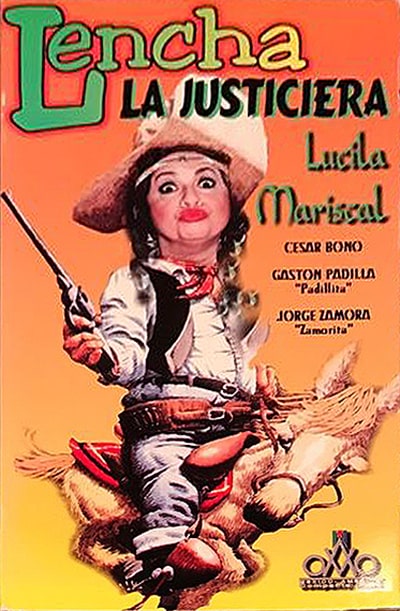
Poster of the film “Lencha la Justiciera”
+Lesbiana
The word Lesbiana is the most universal way to name homosexual women, that is, women who show an inclination towards the erotic and emotional relationship with individuals of the same sex.
Variations: Lesbi, Levis (Mexico, by phonetic similarity to lesbi), Livais o Libais (Mexico, by the way of pronouncing the Levi’s brand), Lesbiano, Lesbo, Lesbia, Lesbicha.
+Machorra
today is a derogatory term used in Spain and Mexico against “masculine” women, and that is synonymous with Marimacho. The reason for inclusion in the dictionary is that its first reference is older than Marimacho, as appearing in the Spanish-Latin Dictionary by Nebrija, published in 1495. At that time, and today has the first meaning of “sterile” and the second “mannish”. Corominas relates it to the alleged inability to have offspring of mannish women to whom equate with lesbians, but we think it is a feminine and derogatory variant of the word macho, applied to those women who, for whatever reason, did not comply with the strict code of female behavior, as we explained in this dictionary entry, Marimacho, having nothing to do with the orientation or sexual life of women, at that time, quite limited.
See Marimacho.
2Marimacho
Marimacho is a very derogatory term that originated by gender vigilance and has been used to attack women with a gender expression that did not correspond with the strict female canon. Used in Spain, Paraguay, Puerto Rico, and Chile.
The first dating is from 1611, contained in the manuscript supplement of the dictionary by S. Covarrubias as follows:
“este nombre ha puesto el vulgo a las mujeres briosas y desenvueltas que parece haber querido la naturaleza hacerlas hombres, sino en el sexo, al menos en la desenvoltura”.
“this name has been set by the common people to the determined and brazen women that nature seems to have wanted them men, but in sex, at least in resourcefulness”.
From this fragment, we can deduce two things. First, it was an expression used by the common people that is collected in a dictionary later, so we cannot rule a much earlier origin. And secondly, speaking of spirited and brazen women, meaning that women are strong, spirit, courage, resolution, panache, gallantry, gentility, with the thrust to drive or perform an action. All this according to the RAE and according to the meanings of the dictionaries of the time. No talk of women who look like men by their appearance, but by their abilities and activities, which at that time were exclusive to men. Nor does any reference to sexual orientation, and this may be because, as we have seen on other occasions, it was not conceived that women had no reproductive life sexuality.
It will be much later when the term Marimacho, in addition to name masculine women or who behave like men, start to be used as a predictor of sexual orientation, with the simplistic argument of “if she makes man things, perhaps she is lesbian”.
Synonyms: Ahombrada, Amachada, Compadre, Fuerte, Hombre, Hombruna, Macha, Machenca, Machetona, Machín, Machín-rin-rin, Machina, Macho, Machona (Peru), Machorra, Machúa, Machungo, Machina, Marimar (by a series of Mexican tv), Manflora, Marimacha (Costa Rica, Mexico, Peru y Venezuela), Mariamacho, Mariomacho, Masculina, Santo varón, Varón.
+Obvia
a term used in Mexico to name lesbians who look like lesbians.
+Sáfica
safic. It is a term used to refer to homosexual woman in the same way as sapphism and Sapphic are used to refer to lesbianism. The term Sáfica was originated from the celebrated poet Sappho from Mitilene, also known as Sappho of Lesbos, since she lived on that Greek island between the 650/610 and 580 B.C. Fragments of his work and some poems are preserved, especially by the echo of her works made by later authors. Unlike other poets, Sappho focused his work on sensitivity, beauty and her inner world. The fact that she belonged to an institution that preparing girls for marriage and thereafter, she founded House of the servants of the Muses, where her disciples learn to recite poetry, sing, make wreaths and flower pendant, makes to deduct from his poems that Sappho fell in love with her disciples and maintained relations with many of them. However, despite the few data we have about his life and the controversy over the object of his poems, she has become a symbol of love between women, which moves between myth and reality.
+Sopaipilla
a term used in Chile with a variety of meanings and very different from each other. One is to appoint homosexual women and this may have several explanations, one that would have relation to the whole, Tortillera Arepera, Cachapera because Sopaipilla is a pancake made from cornmeal and another that would be related to which is also slang for vagina.
+Tijeras
Scissors. An expression used in Argentina to name homosexual women, in relation to the sexual act consisting of rubbing the vulva and clitoris with the genitals of the couple or with the thigh. The leg position reminds scissors. In other places like Spain, is used the idiom “hacer la tijera” (do scissors) to refer to lesbian sex, which may be accompanied or not with an illustrative gesture crossing 2 fingers of both hands as if they were legs.
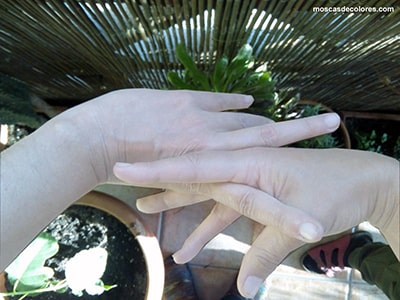
Do the scissor. The typical gesture made with the hands to refer to lesbian sex.
Variations: tijereta, tijerina.
Related: Tribada.
2Tortillera
Tortillera is a derogatory term to name lesbians. Its literal meaning is a kitchen utensil used to make tortillas (omelets) or wear it to picnic and is also the woman who makes omelets or pancakes, depending on the country.
The first written reference of the word Tortillera as slang for lesbian dating from 1830, in the Spanish-French dictionary by M. Nuñez de Taboada, published in Madrid, in which the French word “Tribade” is translated as Tortillera and defined as “a woman who abuses another”. With this, it is demonstrated that the origin attributed to Maitreya, a novel by Cuban writer Severo Sarduy published in 1978, is wrong. Although the word tortillera as lesbian slang is more or less known wherever Spanish is spoken, the origin must be placed in Spain.
Another fact that could reinforce this idea is a text of Adolfo Sanchez Vazquez, which narrates the arrival to Mexico of Spanish exiled people by the Civil War, who was surprised to see a sign saying “El sindicato de Tortilleras les da la bienvenida” (The Tortilleras Union, gives you the welcome). Everything can be, but at the beginning, nobody would make a poster or a union with a word that was also derogatory slang of lesbian.
Some explain the origin of this slang with etymology, which brings us to the bun and even the placenta (look at that!!), but the thing is, forgive us Corominas, often slang words are not originated by etymology, but are created from jumps of phonetic resemblances, in order to avoid pronouncing what really meant, or also for mispronouncing one word or say one word for another.
Thus, the most likely origin could be in the term Torticera (something like tortious), a word derived from Latin tortus, with the meaning of crooked, twisted, etc. Torticera would be a cultured word, and by a process of popular etymology would be expressed wrongly as Tortillera, by their phonetic similarity. In this way, people said “she is Tortillera” instead of “she is Torticera”, by an error in pronunciation. The consideration of homosexual behavior as something twisted, deviant, will do the rest.
For all the above, Tortillera as slang for lesbian, would not have its origin in tortilla (omelet) or bollo (pancake), thus refuting all sexual and onomatopoeic explanations of this famous lesbian slang, but it belongs to the set of insults that have to do with the idea of ill-fated, deviant, inverted, twisted, etc. so common in the gay and lesbian slang of almost the entire planet such as, the famous English word Queer.

T-shirt with the Tortillera drawing. You can purchase it in our online stores.
Variations: Tortera (El Salvador, Peru, Puerto Rico), Torta (Argentina, Uruguay), Torti (Argentina, Miami, Honduras, Spain, Peru), Tortilla.
Related: Arepera (Colombia), Cachapera (Venezuela, Puerto Rico), Pastelera y Panadera (Peru).
Read more: Tortillera. Lesbian Dictionary (Spain).
2Tribada
according to the DRAE, tribada (or tríbada) is the poetic form of lesbian, probably because everything that smacks of classic it sound to glory to them, as opposed to Tortillera, defined as vulgar by the same members of the Spanish Royal Academy. Tribada comes from the Greek verb “tríbein” meaning rubbing, a verb, as everyone knows, squander poetry all around.
So far, everything that is known with certainty about what rubbed Greek women in the cradle of our civilization, a sexist, misogynist and homophobic societies, that considered women mostly inferior beings, properties, and virtually slaves without non-reproductive sexuality . So if someone imagines Greek women doing the scissors, most likely it was a sexual practice by prostitutes for the enjoyment of men at parties. In the same manner in ancient Greece there were no gay men, lesbians did not exist, because are concepts and constructs that appear recently in the 19th century, which have little, or nothing to do, with what could be that in reality. By this, we mean that probably in ancient Greece not existed tribadas, but a sexual practice among women consisting of mutually rubbing the vulva and clitoris. Homosexual behavior is not the same as homosexuality.
Apparently, the first time it appears the idea of rubbing with sexual meaning we now know, is in the 2nd century BC, which corresponds to the end of Classical Greece and the beginning of the Roman Empire, in which the woman could have more protagonism. So from the Greek “tríbein” pass to Latin “Tribas” that, once the Roman Empire falls, momentarily disappears from history. With the advent of the Renaissance and the translation of the classics in medieval eyes, many words among which is “tribein” were incorporated into our modern languages.
In the present case, although we can track the use of the word since 1538 in Italy (Anibale Caro Commento di be agretso | Niccolò Franco. Le pistole vulgari) and 1565 in France (Jacques Tahureau. Les dialogues), merit is usually attributed to Mr. Pierre de Bourdeille, lord of Brantôme, who, in 1587, recovered and spread the word in his “Memoirs”, translated into French as tribade.
In Spanish the first time is found is in 1611 in the “Suplemento al Tesoro de la Lengua Española” by Covarrubias, as a kind of synonymous for the Latin word “marimacho”, that had nothing to do with the actual meaning.
Later the word came on merit in our dictionaries with the actual meaning of lesbian, although from the nineteenth century, the terms tribadismo and tríbada were giving way to the now more common lesbian and lesbianism. In recent decades, tribadismo, plus lesbianism, is used to describe sex between women, returning to the poetic form, from the probably vulgar for the RAE, “hacer la tijera” (do the scissors).
Variations Tribadismo, Tribadista.
+Trola

A piece of graffiti from Ciutat Vella, Valencia, illustrates the slang Trola. Photography by Moscas de Colores.
Trola is a slang that should probably not be in this dictionary since, as we have been explained and assured from Argentina, it is not a lesbian slang term. However, we will keep it in this dictionary to further explain the controversy surrounding this word.
In Spain, it is a term without any sexual connotations, that means lie. But in Argentina, it is related to sex since people use it as slang for prostitute, for an easy woman. It is also used as slang term for a homosexual man in its masculine version, trolo. With this gender adaptation, trolo would be following the same process that occurred with the words puto and gay, whose origin is female prostitution.
However, the opposite version is not difficult to find on the Internet, even at Instituto Cervantes. This is the explanation that we initially published in this dictionary. According to this version, trola is a lesbian slang that would have its source in trolo, slang for a homosexual man, and trolo, in turn, would have its origin in the trolleybus, an urban means of transportation that first started in Argentina in 1913. This idea is actually a bit basic, since the relationship with male homosexuality comes from the fact that people accessed the trolley through the rear door, in a clear reference to anal intercourse. We can also find this type of simplistic and morbid explanations in such famous expressions as, for example, tortillera (omelet without eggs, clapping). These overly simplistic explanations are easily discarded with time and research.
But on this occasion, our only resource is the categorical denial of an Argentine author who kindly contacted us. From his messages, we decided to investigate our source, which was the book “History of homosexuality in Argentina by Osvaldo Bazán”. This author made reference to an article by Dr. Cristian Ferrer (National University of Buenos Aires) “PROGRESO, ILUSIÓN, RUINA. Signos y antecedentes argentinos de la globalización tecnológica.” For this reason, we contacted the latter, who kindly told us that the version he mentioned used to be told when he was a child, a long time ago (born in 1960). Due to this fact, he could not ensure the origin of this slang term.
To find out which of the two versions is true, it would suffice to know which expression people used before, whether trola as slang for a prostitute or trolo as slang for a homosexual man. So far, we have not been able to answer this question. However, our experience and intuition lead us to think that trola is the origin of trolo and not the other way around.
About whether trola is lesbian slang or not, and if trola should be in the Spanish Lesbian Dictionary or not, we have found some pages, and profiles, using it as lesbian slang. We don’t know if it is due to the erroneous explanation we found on the web, or to the feminization of a previously masculinized slang. Whatever the case is, nothing will be able to prevent it from finally becoming slang for homosexual women if that is indeed the way people choose to use it. For this reason, if you use trola as lesbian slang or have any relevant information, please leave us a comment.
Related: Amaricada (Uruguay), Chonga, Chongo (Argentina), Cundanga (Rep. Dominicana), Maricona (Argentina, Bolivia, Chile, Colombia, Miami, Rep. Dominicana, Ecuador, El Salvador, Honduras, México, Perú, Puerto Rico, Venezuela), Mofletera (México), Pájara (Rep. Dominicana), Pata (Miami, Rep. Dominicana, Panamá, Puerto Rico, Venezuela), Pato (Puerto Rico).
See: Trolo. Gay Dictionary, Spain
+Troquera
to talk about this slang of homosexual woman, used in Honduras, Puerto Rico and El Salvador, have to start talking about her male version, Troquero, which is the way the Hispanic communities in the United States and some parts of Latin America, as Chile, call to truckers. Troquero is a Spanglish derived from the English word Trucker. So Troquera would be “camionera” which is, in turn, slang for homosexual woman.
+Virago
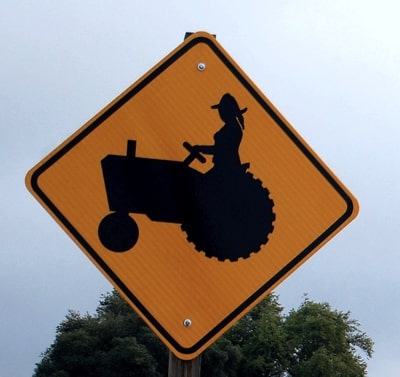
Virago (heroine) is a term that has ended up being synonymous with a masculine woman.
He thinks my tractor’s sexy by Kathy Kimpel used under 2.0 Generic (CC BY 2.0) / resized and optimized.Virago is one of the terms in which homophobia and machismo are more clearly unite. The machismo for making women an incapable and weak being, and homophobia for being used against women who could be lesbians. At present, the Dictionary of the Royal Academy of the Spanish Language defines Virago as a masculine woman, and that is why it is related to lesbians and, people use it as a synonym, as well as the derived words Viragismo (lesbianism), Viragista (lesbian), etc. It would be the time that, after four hundred years, the Royal Academy expanded the information a bit.
However, in origin, the meaning of this term was different because Virago, which comes directly from Latin, had the sense of heroin, as we can see in the CORDE in its first dating in 1160. Later, in 1607, we find it in a Spanish-French dictionary with the meaning of a virtuous woman who does man things.
Thus we see that, as time goes, with successive translations and definitions, characteristics of people such as courage and bravery are assigned exclusively to men. For these hetero-patriarchal societies, women were minor beings who could not be brave, resolute or have courage. These were man characteristics. We go from heroine to virtuous woman who does things of man, to end up currently being a masculine woman.
Over time these definitions will imply that if a woman shows “masculine” characteristics, she may be a lesbian.
See: Marimacho.
+Webiá
it is an expression used in Chile to name women who define themselves as heterosexual but have sex with women. Probably derived from a similar expression, Webiado/a, which is used in general for gays, lesbians, bisexuals, and transgender people. In general, there are some words in Chile with the same root, having the meaning of a person who makes silly things, nonsense. It gives the impression that might have the sense of deviant.
+Zapatona
expression used in Colombia and Mexico to point to homosexual women in relation to the size of the shoe. Zapatón would be a big shoe, and Zapatona would be a woman who likes to wear big shoes associated with men, that is, with this expression is wanted to highlight the “maleness” of the woman, and therefore, that she might be a lesbian. This same idea is found in Brazil with Sapatão and possibly in English language with Tootsie.
Synonyms Bigotona (Argentina. From moustache.), Sombreruda (Argentina. From hat), Pelua (Argentina, from furry).




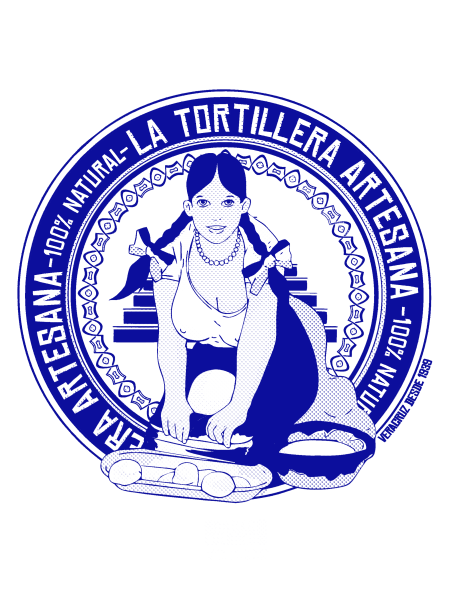
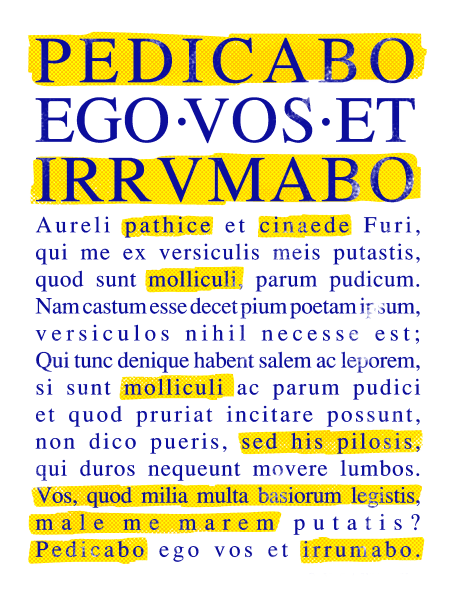

Can you help us with this dictionary?
You can do it in two ways, sending an email with some words you know, and also, spreading our work on your social networks.
Share it!